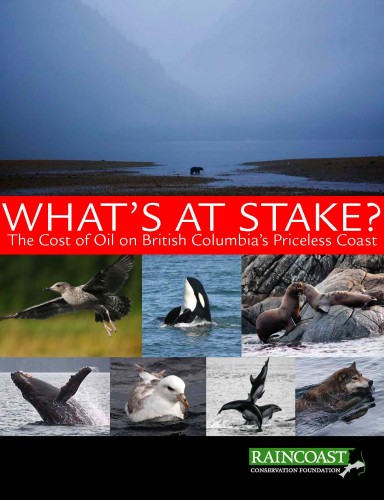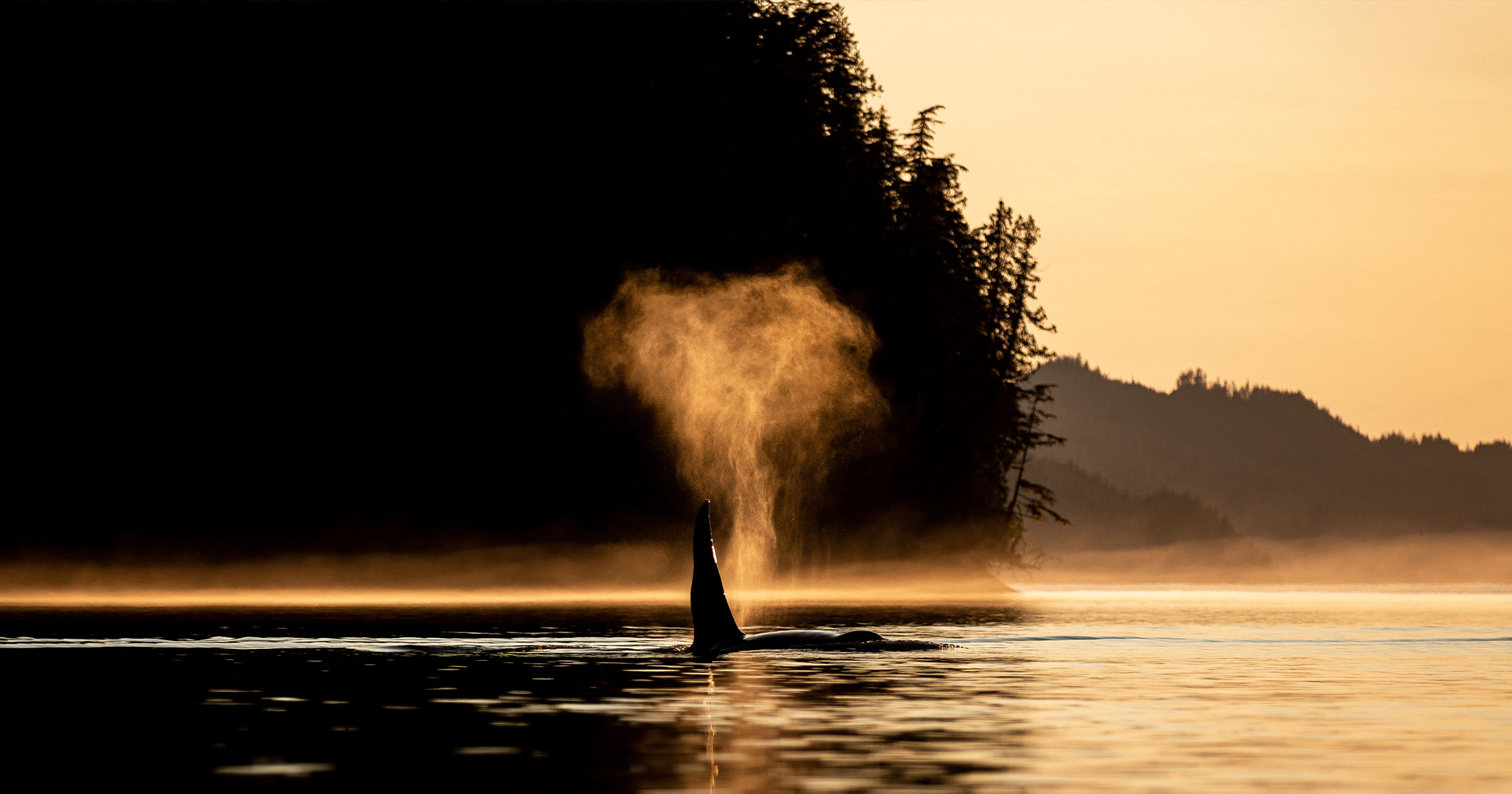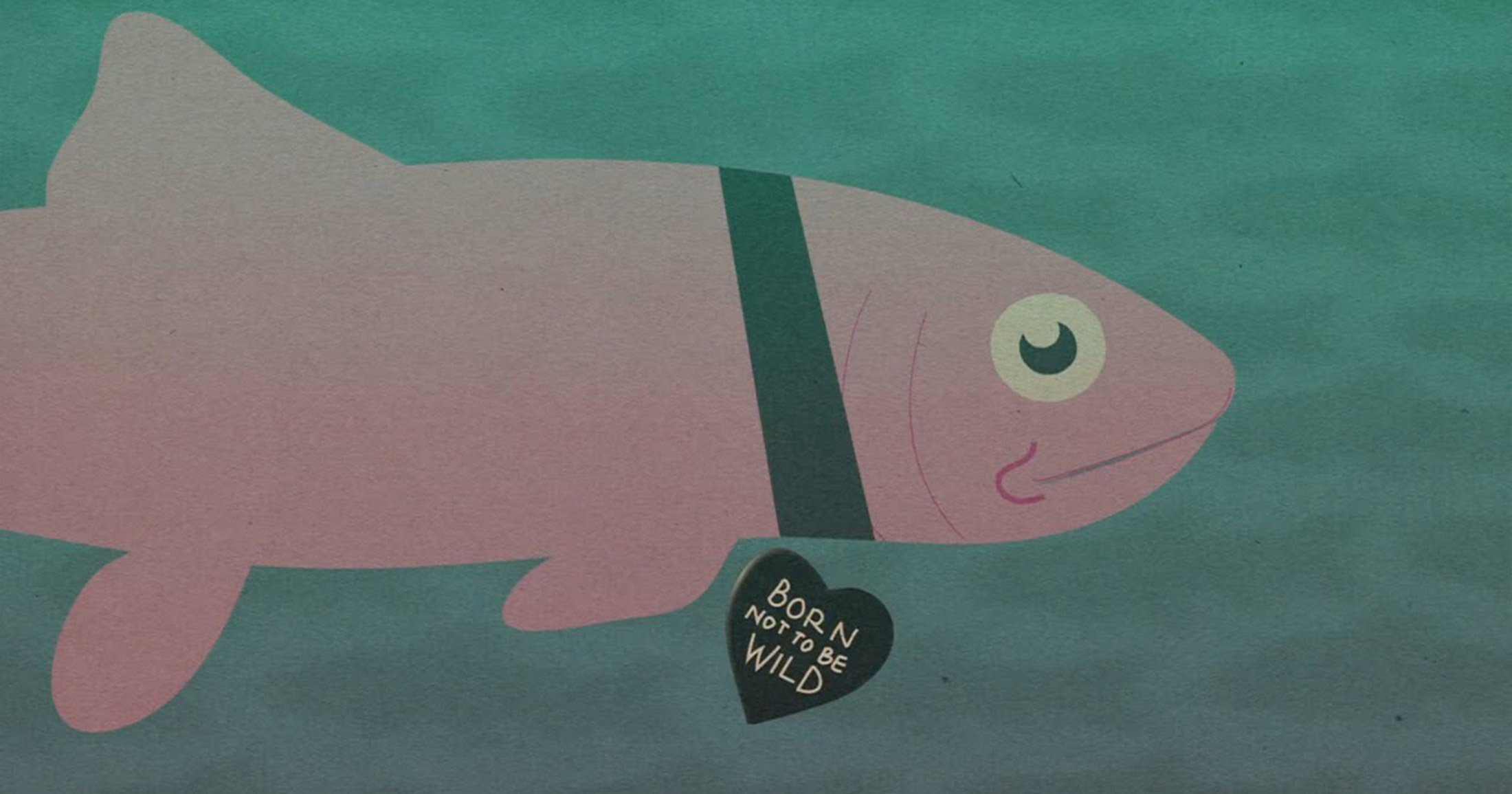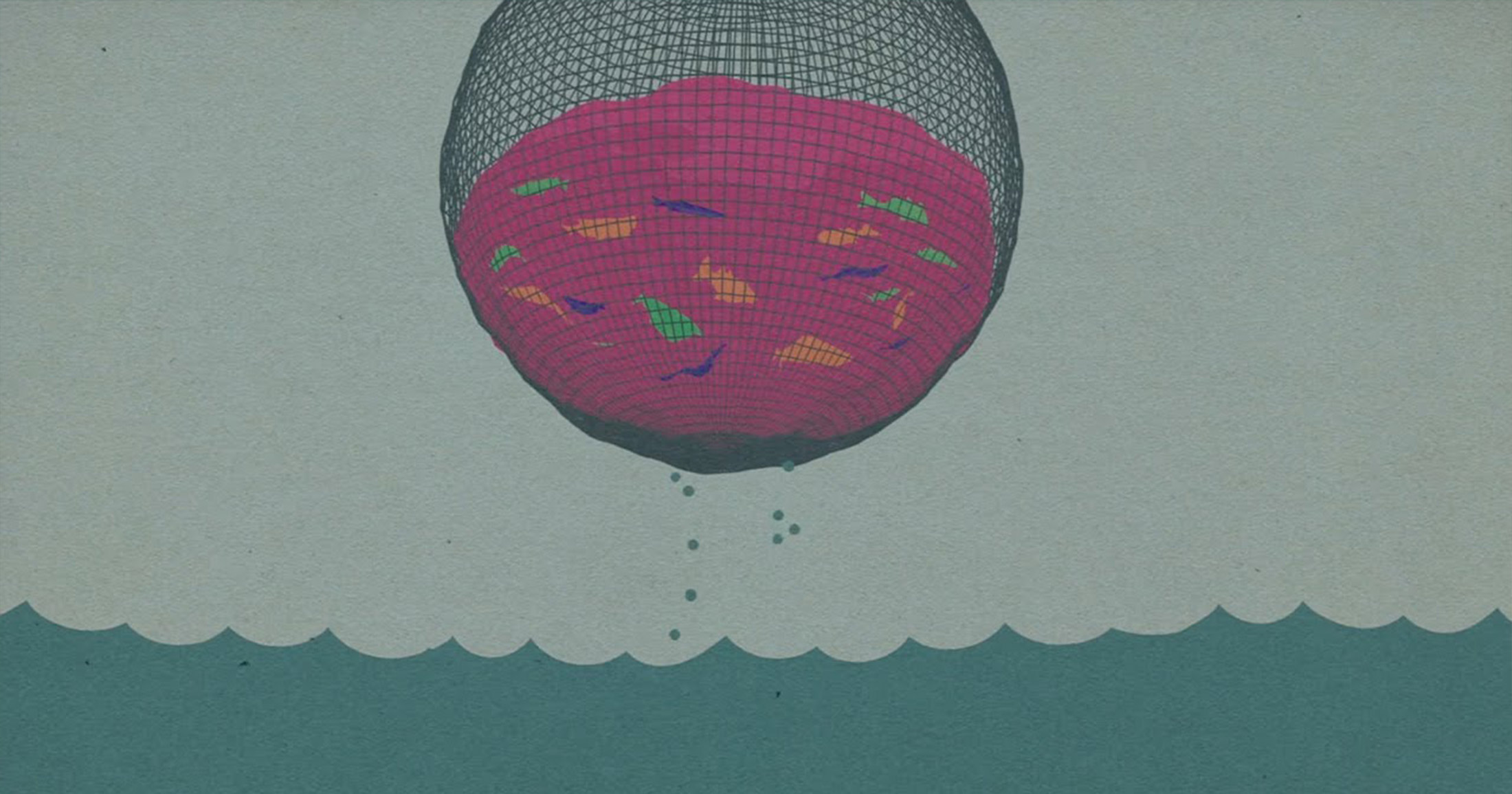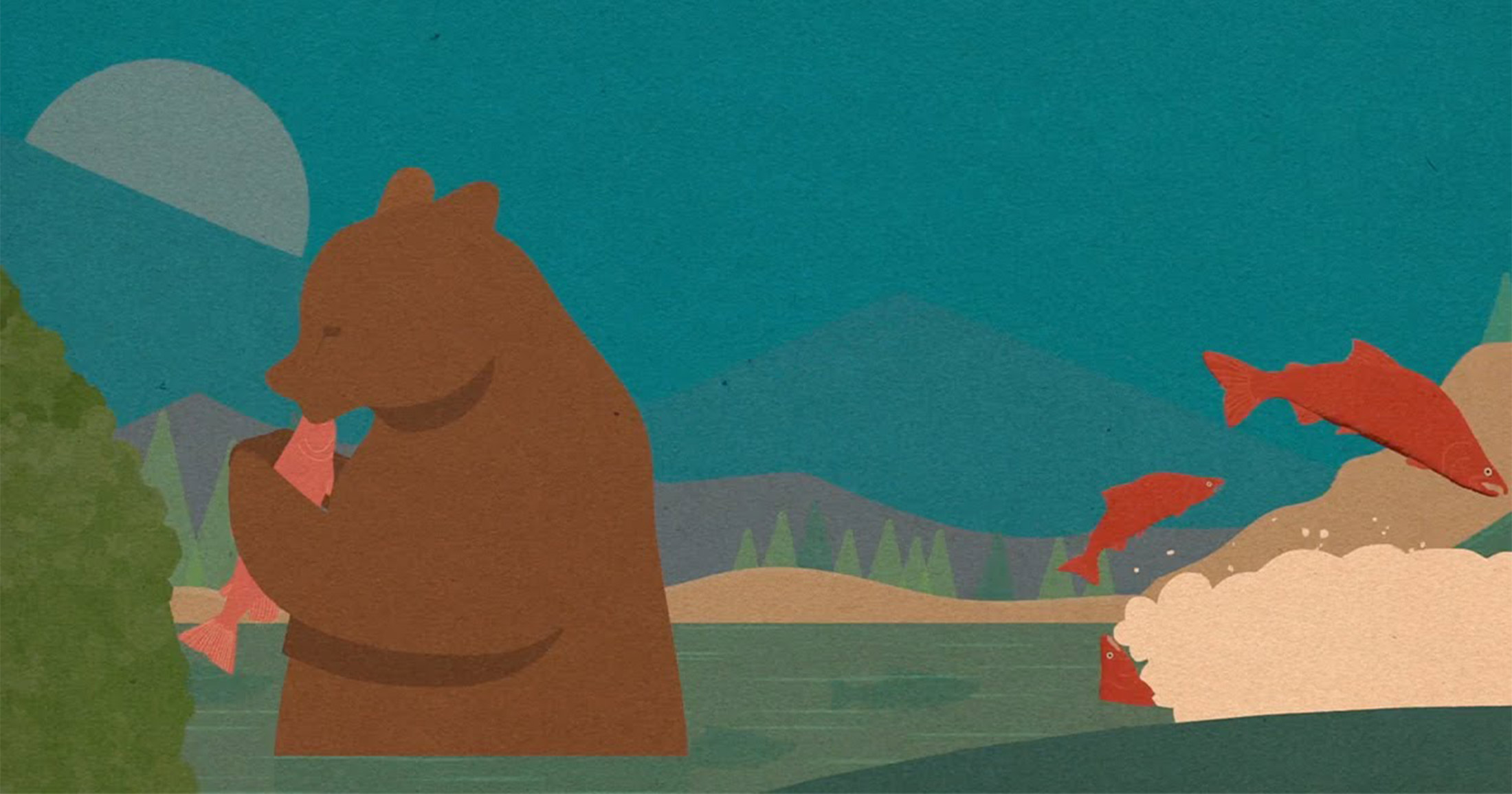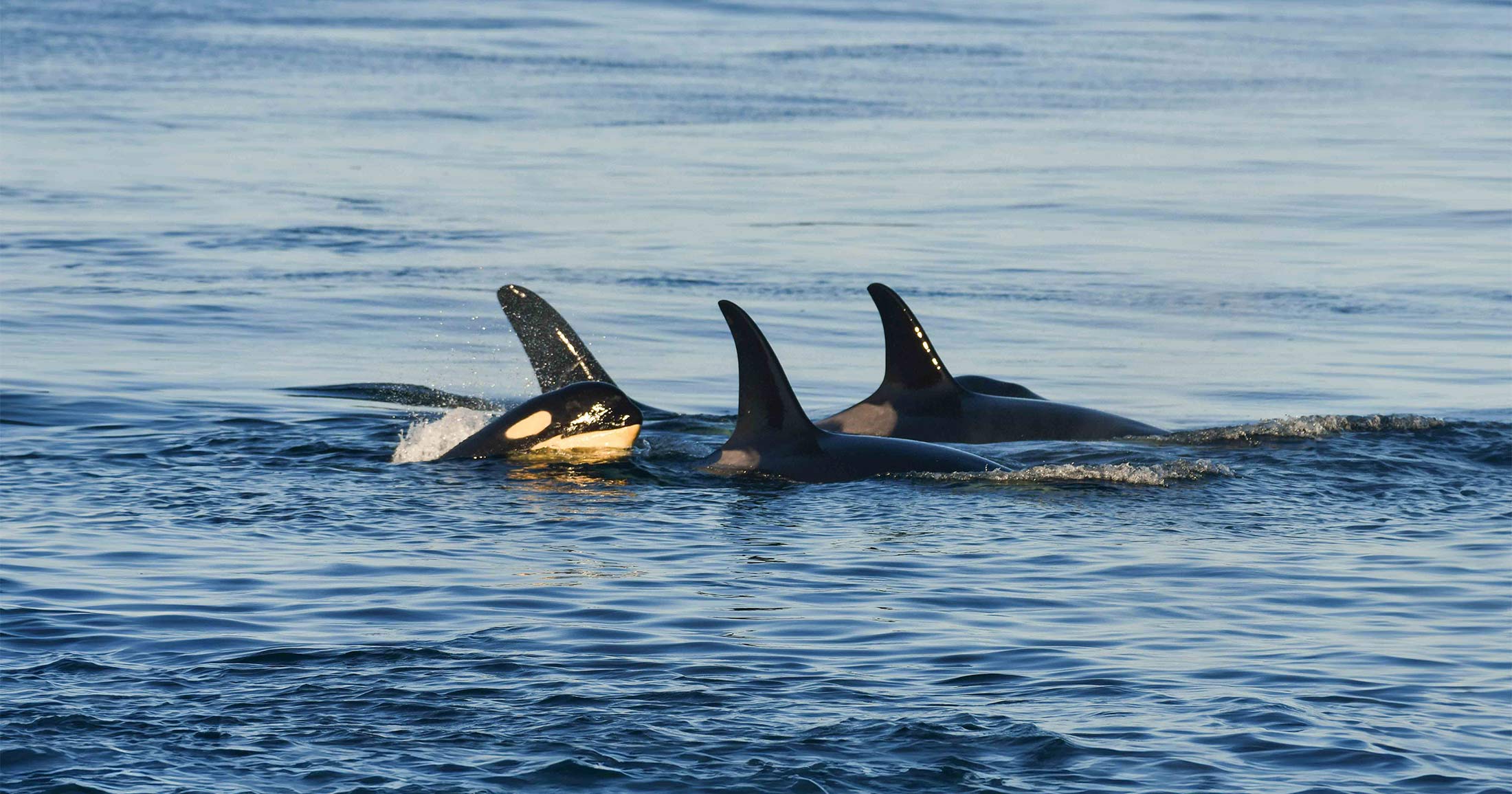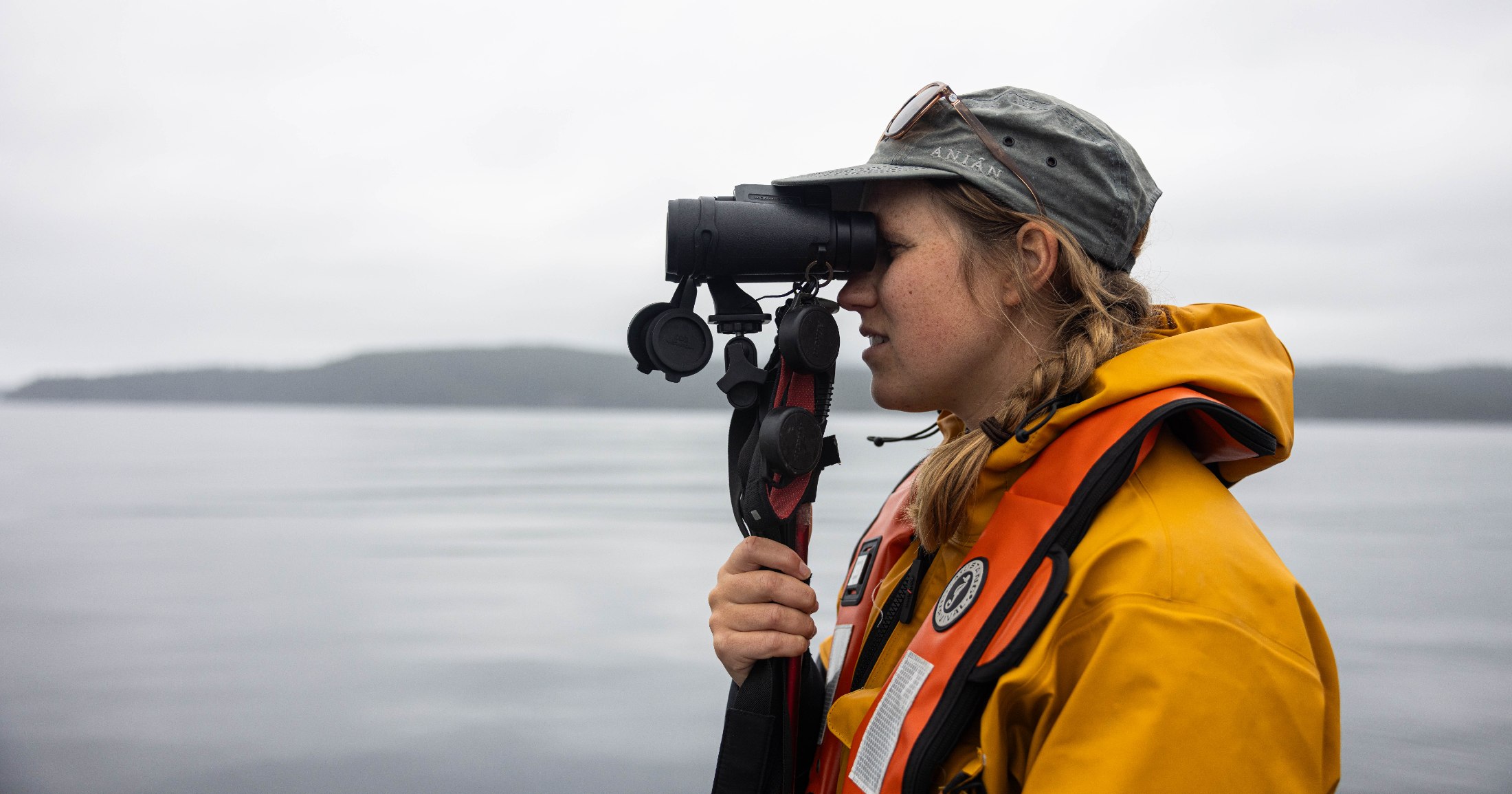What’s at stake? The cost of oil on British Columbia’s priceless coast
Download What’s at S take – The cost of oil on British Columbia’s priceless coast (PDF)
Report details how tankers and oil spills could reverse years of recovery efforts for BC’s marine mammals
This report conveys the ecological implications of oil tankers and oil spills to wildlife on the BC coast. The report stems from five years of at-sea surveys by Raincoast scientists, but places the future of BC’s unique coastline in a broader ecological context. The surveys were undertaken to fill information gaps around the abundance and distribution of marine mammals and marine birds on the BC coast and inform discussion’s about proposed oil tankers and associated activities.
“BC has a dark history of marine mammal exploitation. Since we stopped hunting whales, sea lions, and sea otters to the verge of extinction, we are witnessing their recovery in our coastal waters” said Misty MacDuffee, Raincoast biologist and a report author. “Now there is talk of putting tanker routes in their feeding grounds and risking their habitats to a catastrophic spill. More sea otters died in the Exxon Valdez oil spill than exist on the entire central and north coast of BC.”
Lessons from the Exxon Valdez oil spill in Alaska have shown that even after two decades, some species and fisheries still have not recovered. This includes killer whale populations, some seabird populations, shellfish harvesting and the commercial herring fishery. If the proposed Enbridge Northern Gateway pipeline is constructed from Alberta’s tar sands to Kitimat, we could see supertakers like the Exxon Valdez in BC waters transporting oil to Asian and American offshore markets
“Our findings show that a spill the size of the Exxon Valdez, which is not even in the top 50 largest oil spills, would have a profound impact on marine mammal and marine bird populations on the BC coast,” said Dr. Paul Paquet, Raincoast senior scientist and an author of the report.
“Terrestrial wildlife also face great danger from an oiled coast. Coastal grizzly bears and wolves, which rely on marine foods, would suffer in an Exxon-like catastrophe. Do British Columbians want to give up the last carnivore stronghold in North America in exchange for the last few bucks in a twilight oil economy?” said Dr. Chris Darimont, Raincoast large carnivore scientist and an author of the report.
The work behind the report and its supplemental material can be found here: Defining and Defending Marine Mammal Habitat.
Related Media: Giles Slade Oil spill moves north Huffington Post
Support our mobile lab, Tracker!
Our new mobile lab will enable the Healthy Waters Program to deliver capacity, learning, and training to watershed-based communities. We need your support to convert the vehicle and equip it with lab instrumentation. This will allow us to deliver insight into pollutants of concern in local watersheds, and contribute to solution-oriented practices that protect and restore fish habitat.



